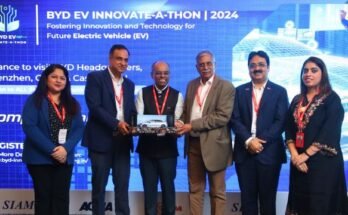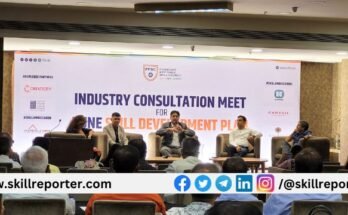The fisheries skill advisory board meeting was held at the National Fisheries Development Board (NFDB) with the initiative of Agriculture Skill Council of India (ASCI) with the aim to bring forth ideas that would enable relevant, effective and timely achievement of skill development efforts in the fisheries sector.
India is the world’s second largest producer of fish, next only to China. Besides being a major source of revenue, fisheries sector is increasingly contributing to nutritional security of the country. With a coastline of 7,517 km, fishing is a major industry in India, employing over 14 million people.
In context of the myriad opportunities which the fisheries sector holds, the group deliberated on the need for enhancing the skills of the fisheries workforce. The discussions focused on key aspects crucial for successful skill development in the fisheries sector, viz., prioritization of job roles, mobilization of resources, designing of training curriculum for skill development, selection of training partners , monitoring and course correction in skill development efforts.
The meeting was attended by stalwarts from the fisheries sector comprising of senior officials from NFDB, Department of DAHDF, ICAR, FISHCOPFED, ICFE, CIFNET, NIFPHTT, CIFT, CMFRI, CIFA, Fisheries Associations, Sea food exporters association and other industry partners. It also included key officials from Andhra Pradesh state skill development mission.
Dr Satender Arya, CEO, ASCI shared an overview of the skill development efforts taken by ASCI and the focus of skilling youth and enhancing employment opportunities. He re-emphasized the support and commitment of ASCI to various stakeholders seeking to contribute towards skill development, especially through current government schemes such as PMKVY. Shri KN Kumar (Chief Executive, NFDB) reflected on the need for enhancing the employment opportunities and uplifting the traditional fisher folk families, several of which are living below the poverty line. Shri Aditya Joshi (JS, Department of Animal Husbandry, Dairying & Fisheries) provided an overview of the government’s action plan and deep commitment towards revolutionizing skilling in the fisheries sector and contributing to blue revolution. He also highlighted the need for skilling in context of the changes that have happened in fishing equipment required for deep sea fishing, as opposed to traditional machinery and equipment which does not provide maximum yield.
The meeting was concluded with a presentation from the Ernst & Young team involved in the creation of QP-NOS for the fisheries sector based on which skill training can be initiated. According to the advisory board, the deliberations of the group would result in channelizing the efforts and the resources of all stakeholders to create employment opportunities, enhance production and leverage a sector which can prove to be one of the biggest assets in the country’s growth story.
Note: News shared for public awareness with reference to the information provided at online news portals.



